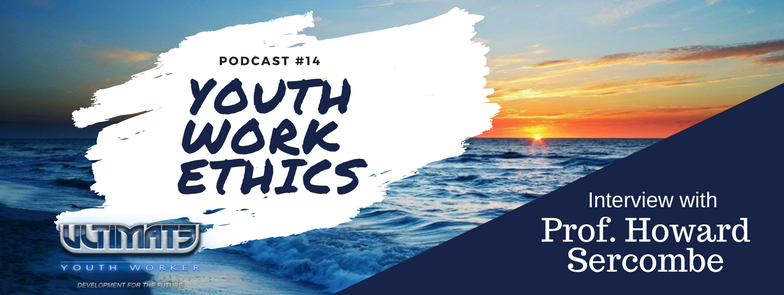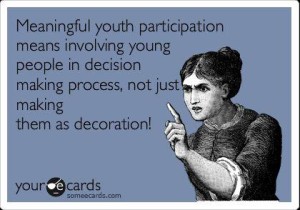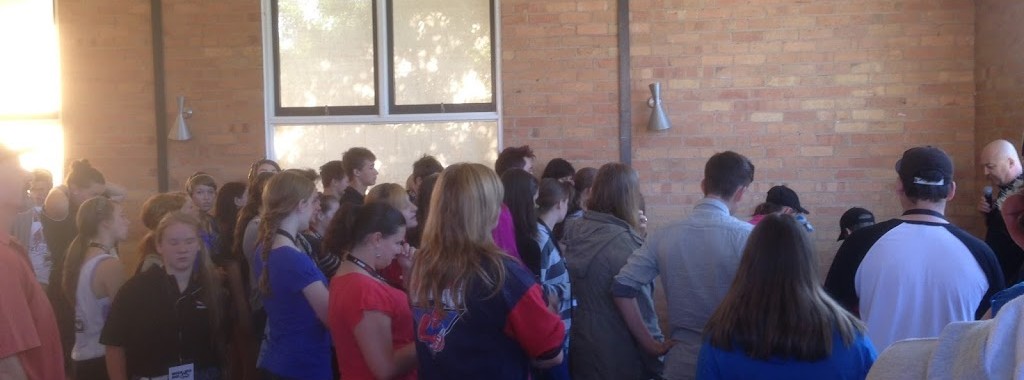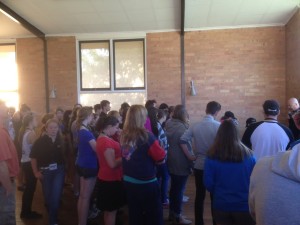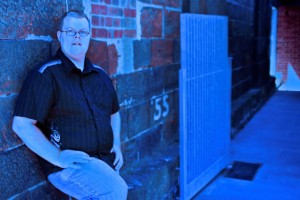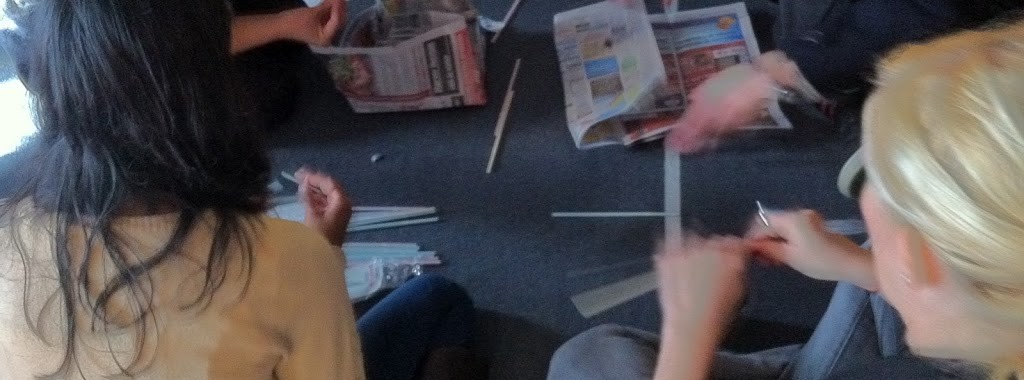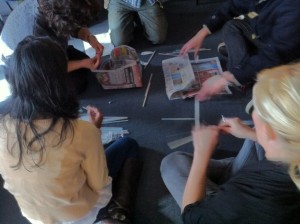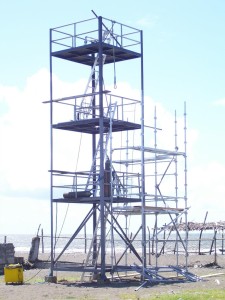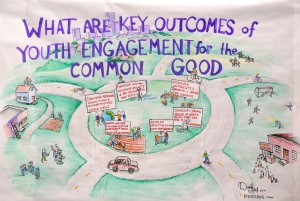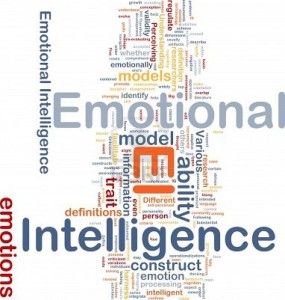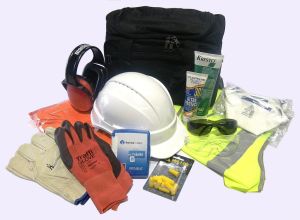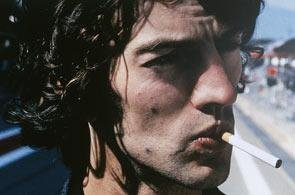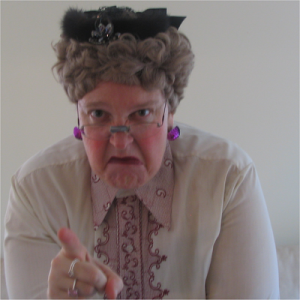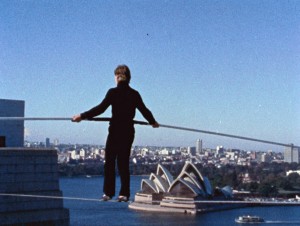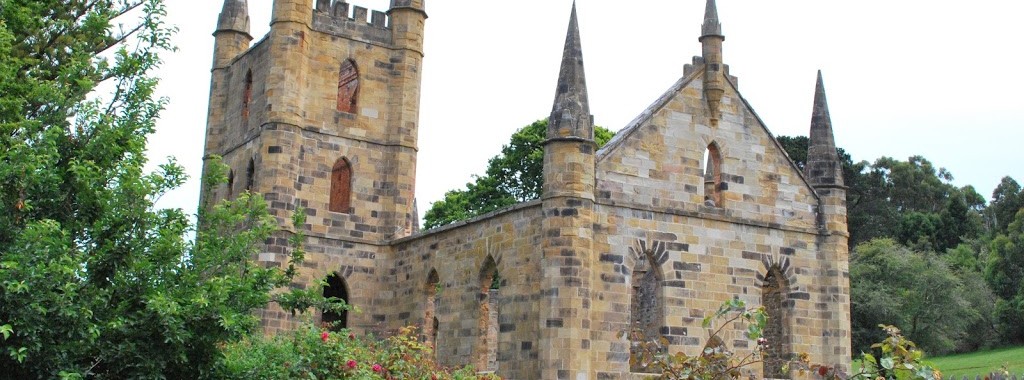
Youth Work Code of Ethics
I remember when I first started as a youth worker. I knew that ethics were important, that they underpinned the work that I did and that a youth work code of ethics existed in Victoria. However, being the gung-ho youth worker that I was, I was more interested in diving head first into the nitty gritty stuff rather than sitting down and dissecting how a code of ethics might better inform my practice and inform my ethical decision making. Over the years I have spent a lot of time reflecting on and refining the work that I do and this has led me to spend a lot more time developing a more rounded and ethical approach to my work. Whilst I would argue that I naturally act within an ethical framework, it can be helpful to know the “guidelines” set out by the industry professionals in your area. This is where a code of ethics comes into play. Having a code of ethics can guide you in the right direction with regards to professional development, increase your longevity in the field and help you to fully understand your roles and responsibilities on a micro and macro scale.
Earlier this year we spoke with Professor Howard Sercombe about his work developing a youth work code of ethics in Australia. I’ve listened to it and summarised a few key learnings that I drew from it, however I do encourage you to listen to the podcast and then have some discussions with your colleagues about the information raised. Here is what stood out for me;
- Whilst we can perform our job ethically without necessarily having a code of ethics written down, having it written down allows us to be more conscious of the work we do and why we do it.
- It gives us a common language to use with each other and allows us to define ourselves and our role to other professionals.
- There is no nationwide code of ethics. Some states are opposed to a code of ethics, however those states that do possess a code share ones that are similar in their makeup.
- A code of ethics is not a list of rules. Youth Work is such a broad field and the circumstances we face are so varied that having one set of rules would not work.
- A code of ethics can be described as “terms of engagement”; core principles that govern our overall approach to working with young people.
With this mind, I have taken some of the key responsibilities from “The Code of Ethical Practice for the Victorian Youth Sector” and outlined ways in which they inform my day to day practice as a youth worker. The Victorian Youth Work Code of Ethics states that “The youth work practice responsibilities describe key elements of what youth workers do when guided by the youth work principles. They are the essence of youth work practice and are important in youth workers fulfilling their responsibilities. The youth work practice responsibilities are not placed in order of importance, but are all of equal value”.
Young People as the Primary Consideration.
“This means thinking about, then doing, what is best for the young person. So even if other people are involved in your work—like the young person’s parents or another worker—you always make decisions in the best interest of the young person”.
I hear all the time “we have the young person’s best interest at heart” or many other variations of the same sentiment. But what does it actually mean in practice? I regularly try to think back to when I was their age and how I would have responded to certain situations, then put myself in their shoes. Being able to understand a young person’s situation from their point of view allows you to truly consider what is best for them at that point in time. From this point of view, you can connect with them on their level and act as an advocate.
As a residential youth worker, a prime example of “young people as the primary consideration” is the Looking After Children documents (LAC). The Department of Health and Human Services states that “Looking After Children (LAC) is an outcomes-focused approach for collaboratively providing good care for children placed in out-of-home care. In Victoria, LAC provides the practice framework for considering how each child’s needs will be met, whilst that child is in out-of-home care. It is used for managing out-of-home care in accordance with the Best Interests Case Practice Model cycle of information gathering, assessment, planning, implementation and review”.
Parts of the document are completed by the caregivers, and parts are completed with the young person to ensure they have a say in the outcomes they want from being in out-of-home care. The goal setting element of this document is extremely important and can be an empowering process for the young person if done correctly.
Boundaries.
“The youth work relationship is strictly professional. Professional boundaries intentionally protect both the young person and the worker. Youth workers will maintain the integrity of these limits”.
Some of the young people I work with make it their mission to find me on social media. For the most part they are successful. This has led me to finding ways to conceal my online identity and I have even deleted some accounts to avoid causing any issues. For the most part this is not a real issue though, as the boundaries are very clearly set out in the beginning.
This is such an important responsibility to adhere to when working with young people. Depending on the service and your role, you have to walk a fine line between between being a “friend” and being a “worker”. Professor Howard Sercombe states that the relationship between a youth worker and a young person creates a space of safety and security that can make it easier for them to disclose. As a youth worker you connect with the young people on their level and form a close and trusting relationship, but you must also make sure that they understand your role and the responsibilities you have. For instance, the legal responsibilities you have in terms of mandatory reporting. As stated above, this is for the protection of the worker and the young person.
Cooperation and Collaboration.
“This means you work together with other people to get the best results for young people. For example, you might involve another service or the young person’s family if it’s appropriate (and the young person gives consent)”.
To practice this responsibility ethically would involve putting differences aside and always having the child or young person’s best interests at the forefront of your practice. As the age old saying goes “it takes a village to raise a child”; the same applies for the social services sector and the young people and children we support. We are constantly liaising with family members, other services and government organisations to ensure the best possible outcomes for the people in our services.
I am currently involved with a program that is a prime example of cooperation and collaboration. Treatment Foster Care Oregon (TFCO); a foster care based program, includes four key professionals that are working with and for each young person around the areas of individual therapy, skills coaching, family therapy and education. Every week, we meet with the young person, their carers and their family, as well as have a clinical meeting. In this meeting, professionals share ideas, make sure we are all working towards the same end goal and develop a fully collaborative plan for each young person’s time in the program and beyond. This model displays transparent regard for the young person, what they want to achieve and how. This is extremely important when working with other professionals and / or other organisations, as the young person must firstly give consent but also have ownership over their case plan.
Recognition of Indigenous Peoples.
“Youth workers recognise that we live on the traditional lands and waters of the Indigenous peoples of Australia. They recognise that culture and connection to land and community is a right for Indigenous young people and that they have a right to cultural safety. Youth workers will be respectful of Indigenous culture at all times and recognise the importance of culture as it relates to Indigenous young people’s self-esteem and sense of identity”
“In 2015-16, Indigenous children aged 0-17 received child protection services at a rate around seven times that for non-Indigenous children, and they were 10 times as likely to be in out-of-home care” (Australia’s Welfare 2017: in brief, AIHW).
The above statistic is alarming. In my work I am ten times more likely to work with an Aboriginal or Torres Strait Islander (ATSI) child or young person than a non-ATSI child or young person. This highlights how important it is to have a deep understanding of how to appropriately and ethically work with ATSI people.
I was lucky enough to begin my journey as a youth worker within an ATSI leadership program in Melbourne. Through this I was able to learn a lot from local ATSI young people and elders about the importance of culture, not only in their lives, but in the lives of non-ATSI people too. One important lesson I took from this experience was that ATSI culture is so expansive and differs all over Australia. So in order to be culturally sensitive in my practice I have to familiarise myself with the history and customs of each different community I am working with australian online casinos here.
There are many ways in which having an ethical practice with regards to recognition for Indigenous people can be achieved. A few simple but important things that can be done are;
- Knowing the traditional owners of the land you live/work on and display a flag or sticker to show your acknowledgement.
- Perform an acknowledgement of country at the beginning of meetings/events.
- Participate in cultural awareness training at your workplace.
- Know the history of Australia and the details around its’ invasion.
- Know the appropriate language and terms to use when talking to and about ATSI people.
- Attend events in support of ATSI rights and recognition.
- Familiarise yourself with laws and important documents that relate to the history and recognition of ATSI people. Such as the “Bringing them Home Report”, and more recently the “Uluru statement from the heart”.
Knowledge, Skill and Self-care.
“This means you commit to ongoing learning. For example, you might read new research or take special training. Self-care means you’re aware of and take responsibility for your own physical and emotional wellbeing. This is important because you help young people best when you feel well yourself. Your organisation also has a responsibility to support your professional development and self-care”
At Ultimate Youth Worker we have spent a lot of time speaking about self-care. Our last blog post was entirely dedicated to self care as it is such an important part of ethical practice.
Knowledge is also part of this section of the code and is just as important. Within all the work that I do, knowing the legal boundaries and expectations of my role is just as important as knowing organisational ones. Trainings such as those from Youth Law have formed an integral part of my understanding around mandatory reporting and age of consent laws. As these laws can change, it is your ethical duty to ensure you are up-to-date with the laws that affect your role.
As part of my own quest for knowledge, skill and self care, I participate in the World Youth Worker Network. It is a facilitated peer support network run by Ultimate Youth Worker solely dedicated to the longevity of youth workers through personal and professional development. The network has given me a deeper understanding of my core values, my purpose and goals in life. It has played an integral part in ensuring that I have the best ethical practice possible.
The other responsibilities in the Victorian code of ethics are privacy and confidentiality, duty of care, social context and anti-oppressive practice: non-discrimination, equity and self-awareness. As stated at the start, no single responsibility is considered more or less important than the other, and most of them are overlapping in how they affect our day to day practice. Are you familiar with the code of ethics for your sector? Do you think it’s important to have a code of ethics and apply it in your everyday work? We would love to hear your thoughts and feelings on this topic. Leave a comment on our socials and get the conversation started!
If you would like to read more about different codes of ethics in Australia, you can access them in the links below:
The Code of Ethical Practice for the Victorian Youth Sector.
Australian Association of Social Workers Code of Ethics.
Western Australian Association of Youth Workers Youth Work Code of Ethics.
